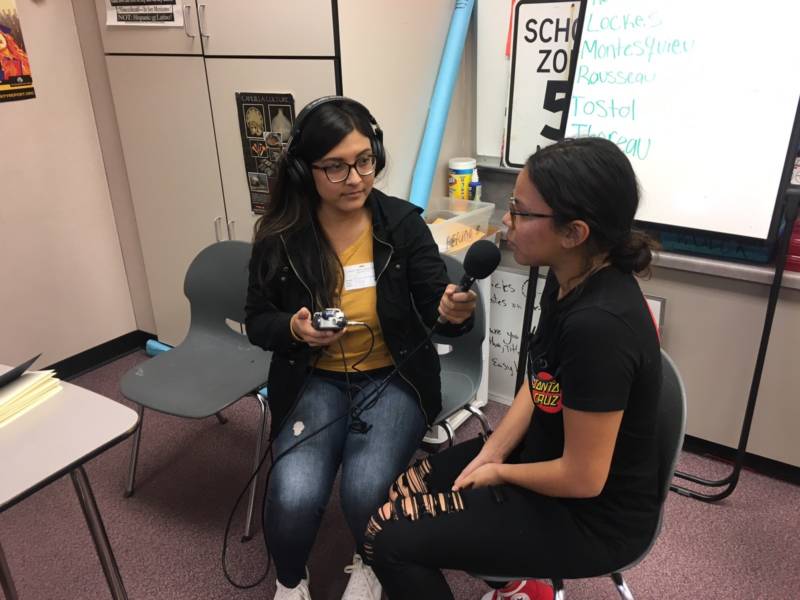Mental health is a largely stigmatized conversation among young Latina women and other women of color in the Eastern Coachella Valley, a rural, unincorporated area of Riverside County. In 2018, a small group of young women, ranging from ages 15-25, and their adult allies launched a new storytelling collective called ¡Que Madre! Media with the goal of challenging those stigmas through storytelling.
Together, they use storytelling on Instagram and elsewhere to elevate their own personal experiences struggling with mental health challenges -- and to connect community members with local mental health service providers.
Filmmaker Olivia Rodriguez, 25, sat down with a fellow founding member of ¡Que Madre! Media, Juliana Taboada, 17, to talk about the mental and emotional distress young women in the Eastern Coachella Valley face, and how storytelling can help end mental health stigmas.
Can you talk about the mental health challenges facing young women in the Eastern Coachella Valley? I know that you have been a big advocate through your writing.
Taboada: Being in a predominantly Latino community, women are always assumed to be irrational or overly emotional. And when we deal with those feelings, we are seen as crazy or mentally unstable. I think we forget that you need to deal with your emotions; you can't just put them aside, because that makes them worse over time.

